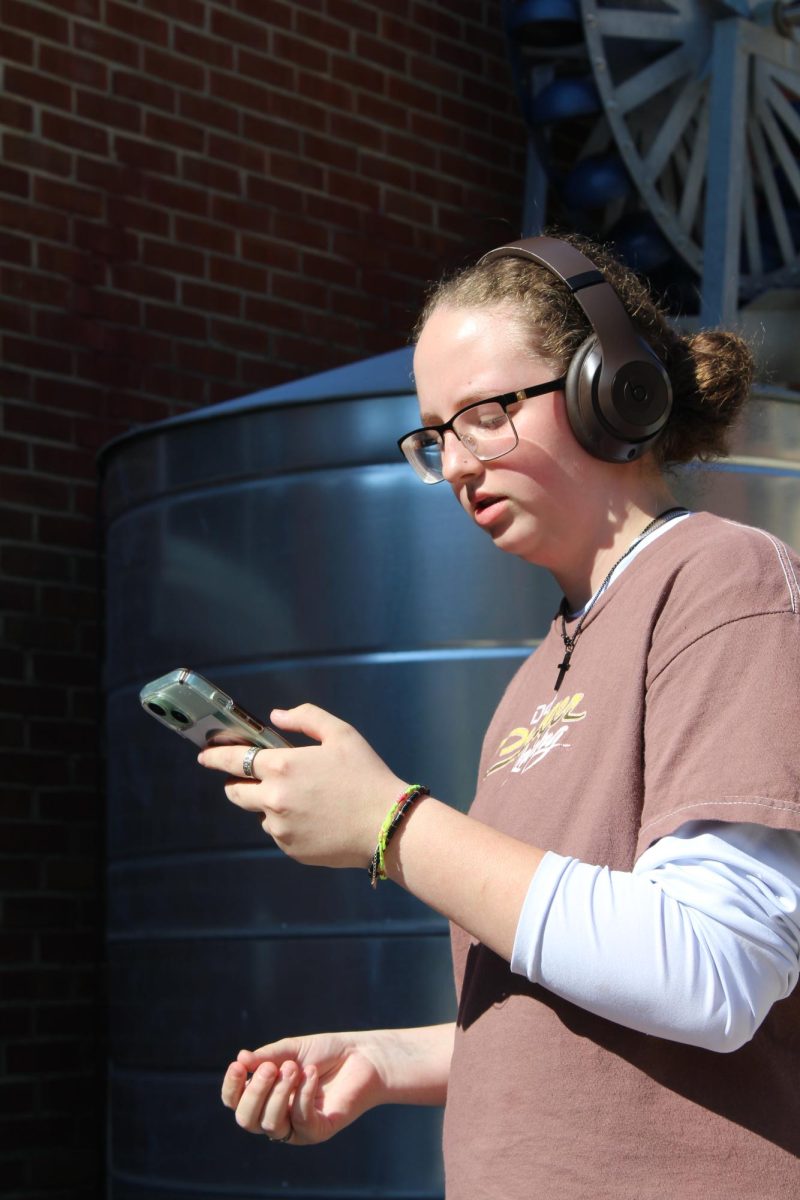This year, there is a new addition to the choice of classes at White Station High School. It is a class for those who appreciate theater and look to develop their skills: Pitts’ seventh period, Theater Forensics and Debate, explores students’ skills in acting and gives them opportunities to compete against other schools. The theater assignments consist of a piece that students pick from a range of categories.
“You have to find a piece throughout many of the categories, there’s after-dinner speaking, one where you have to write a poem and there’s mine where you have to do humorous [interpretation],” Jayden Haynes (11) said. “Where for me I have to find a piece that I can cut down into a short little ten minutes. I have to play all those characters and basically develop the story one person at a time with just me, myself and I.”
Once students have chosen their piece, they take time to rehearse before they eventually perform in front of the teacher. They are not yet graded but are nonetheless assessed. The teacher proceeds to give them advice on what they need to improve on, such as what they should add or what they should take out. These assignments provide students with great opportunities to develop their acting skills.
“The assignments are really uniform because you kind of get used to going over the same thing over and over again, so you get comfortable with how you act with that person,” Haynes said. “[You] really get it down, and once you do that you can experiment a little more and really fully develop how that character is and how you want the character to be perceived by the audience.”
The assignments are done to develop students’ performance skills. This helps them to excel during debates in which they compete to test their skills. It also allows them to become comfortable with acting in new environments.
“The whole point of this class is to pick a piece out of any category — there are multiple categories — so it’s something that fits everyone,” McKenzie Bailey (11) said. “You have to prepare a piece to compete in competitions.”
Unfortunately, students have not been able to experience debates due to complications with planning and competition locations, but they are preparing in hopes of an opportunity in the future.
“We have seen videos and stuff, and it will usually be in a classroom or something and you compete against other students, but it is not a debate,” Bailey said. “You are just by yourself, or, if you are in a duet piece, you are with another person in front of judges.”
As the name of the class suggests, the debates are an important aspect of the class, and students’ class experience surrounds it. Without an opportunity for a debate so far in the year, many students have questions surrounding the lack of them.
“It’s all kind of like an experiment to see how it plays out, it’s that certain kind of — it’s not fear — the excitement of the unknown that comes with it,” Haynes said. “As we practice it is just us trying to do our best preparing for debates, [but] we do not know what to expect, really.”
As expected with most new things, the class needs time to develop. The students’ experience is not greatly affected negatively by this lack of debates; fortunately, the class can still give the students plenty of new lessons and knowledge.
“Personally, it gives me a whole new aspect [of theater] and it makes me realize, ‘Wow, this is way more than what I initially thought it was on the surface,’” Haynes said. “[Usually] when you think of acting you think of Broadway, and like movies and TV shows, but here it’s like ‘Oh, I’m doing this competitively, so I have to get better and better and better, and be better than this person, and be better than that person to eventually go to state.’”
The class’s novelty has given these students a whole new outlet for their performance. This extension adds to their theatrical careers and education.
”It gave me a better insight into other parts of the theatrical life, such as forensics,” Bailey said. “I have never known about the competitions and things before this class.”
Theater has been an important part of the human experience, as many people find it therapeutic or rewarding. The many components of it from design, acting, singing, writing and directing have become home for students’ creativity.
“I have learned that I like to write,” Derwin Miller (9) said. “It has allowed me to write more about stuff that is personal to me. [I look forward to] being able to allow my speeches that I write [to] motivate people and to win competitions.”
For a large portion of student actors, the components of theater have not been the only homey thing to them. The community is very welcoming and this class is a wonderful example of this community to many of them.
“I like the acting portion, and it is also a challenge and it is different from regular acting and it is also … welcoming, so I know a lot of people in this class,” Haynes said. “Well, I actually know everybody in this class and have some type of bond.”




































